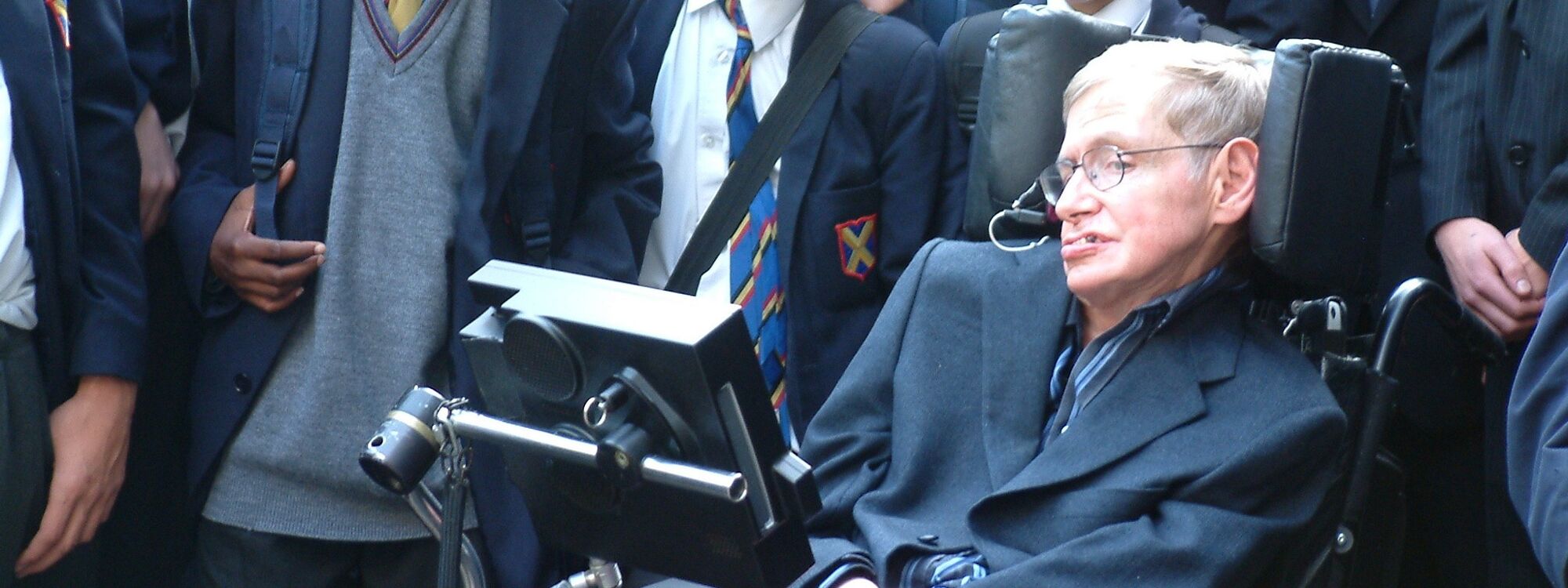
Professor Stephen Hawking CH, CBE, FRS, FRSA (OA 1959)
Born in the midst of World War II, Stephen William Hawking started life in Oxford, moving to St Albans in 1950. Hawking joined St Albans School in 1952, where he met Mathematics teacher Dikran Tahta, who became an inspiration to him. Together, they built Hawking’s first computer made with electro-mechanical switches, which highlighted Hawking’s academic curiosity. When speaking about Tahta, Hawking said: “behind every exceptional person, there is an exceptional teacher.”
Hawking left St Albans School in 1959 after A Levels and went on to study at University College, Oxford, where he achieved a first-class honours degree in Natural Sciences. Hawking then moved to the University of Cambridge where he obtained his PhD in Applied Mathematics and Theoretical Physics. It was during his PhD studies that Hawking was diagnosed with motor neurone disease and given only two years to live. He defied expectations and continued working up until his death in March 2018.
In 1965, Hawking began his research fellowship at Gonville & Caius College, Cambridge, and it was from here, in the late 1960s and 1970s, that he had one of his most prolific – and ground-breaking – periods of work, including the publication of his first books and promotion to the Lucasian Professor of Mathematics, a post he held until 2009.
Hawking’s work has changed the way that we think about the universe and how it began, revolutionising modern physics. In many ways, he is best known for his publication A Brief History of Time, which covers a range of subjects in cosmology and made the topic accessible to millions of readers; it stayed on The Sunday Times’ bestseller list for a record-breaking 237 weeks. His academic work around theoretical physics, black holes and the Big Bang was – and remains – ground-breaking, including creating the first scientific model of the origin of the Universe.
Hawking’s status as a theoretical physicist and cosmologist, together with his books and public appearances, made him an academic celebrity and household name, and he opened the London Paralympics in 2012. He was an Honorary Fellow of the Royal Society of Arts, as well as being a lifetime member of the Pontifical Academy of Sciences and a member of the US National Academy of Sciences. In 1982, Hawking was awarded a CBE and became a Companion of Honour in 1989, and in 2009, he was awarded the US Presidential Medal of Freedom by President Barack Obama - the highest civilian award in the United States. He has been awarded numerous honorary degrees and academic accolades.